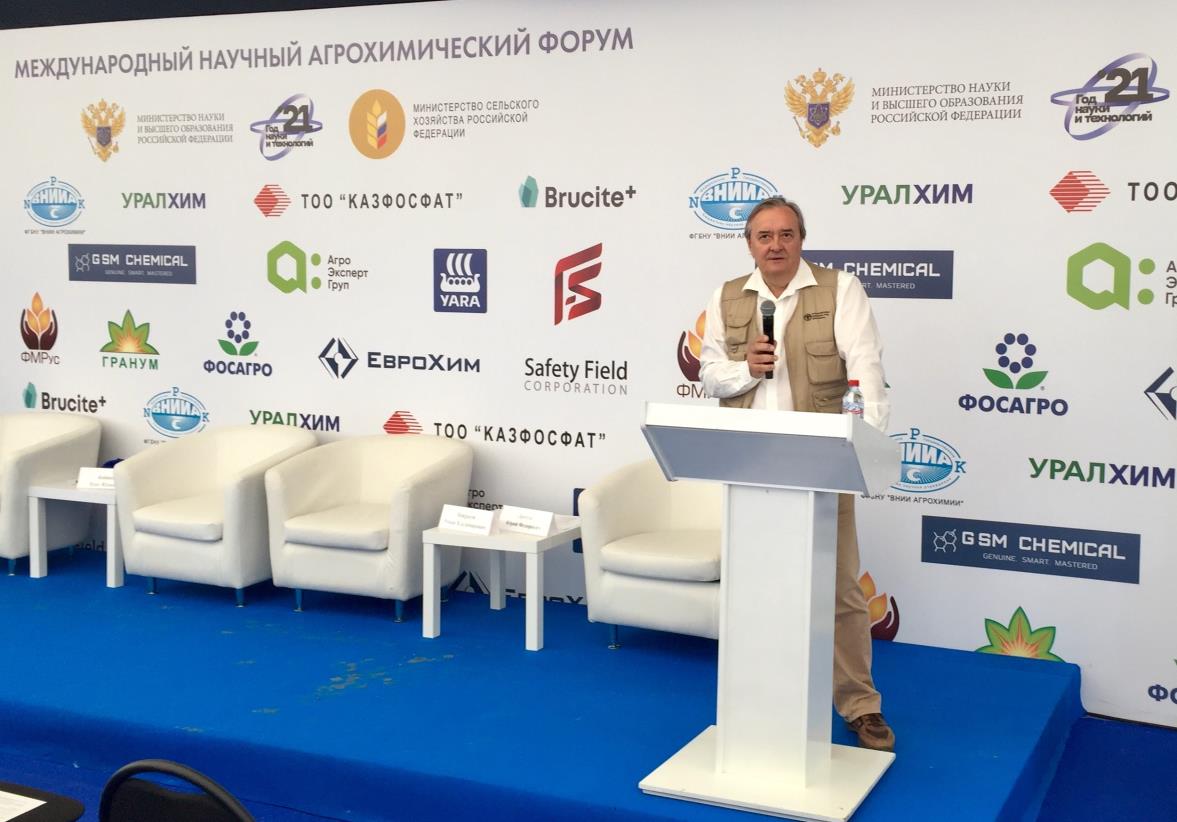Why transform food systems? FAO knows why

Photo: © FAO / Vladimir Mikheev
29 July, Shebantsevo village, Domodedovo district, Moscow Region –To mark its 90thanniversary and the Year of science and technology, Pryanishnikov Institute of Agrochemistry hosted a forum at its unique agroecological testing location. The delegation of the FAO Liaison Office with the Russian Federation, headed by Director Oleg Kobiakov, took part in the “Agropoligon-2021” International scientific forum on agrochemistry.
Dr. Irina Donnik, Vice-President of the Russian Academy of Sciences, Vugar Bagirov, Director of Coordinating Department for Agrosciences Organizations at the Russian Ministry of Science and Higher Education, Roman Nekrasov, Director of the Department of Plant-Growing, Mechanization, Chemicalization and Plant Protection at the Russian Ministry of Agriculture, addressed an audience of agrochemists, soil scientists, microbiologists, environmentalists, plant breeders, engineers, plant physiologists and representatives of federal executive authorities.
FAO focused its intervention on the state of world food security in terms of progress in achieving the UN Sustainable Development Goals (SDGs).
“Long before the COVID-19 pandemic, we were already lagging behind in delivering on our commitments to eliminate hunger and all forms of malnutrition worldwide by 2030. The pandemic aggravated the challenge significantly”, said Oleg Kobiakov, Director of FAO Moscow Office. Citing the conclusions of FAO’s report The State of Food Security and Nutrition in the World 2021, he listed four major factors posing a threat to the functioning of standard food systems.
According to FAO, these are first and foremost external factors: armed conflicts, climate change and associated extreme weather conditions, economic slowdowns and recessions that often occur simultaneously.
Their negative impact on food security and nutrition is exacerbated by persistent high inequality.
There are internal factors as well that undermine food systems – low productivity and inefficiency of food value chainsthat result in growing prices of nutritious food and, together with low income, decrease the accessibility and affordability of proper nutrition. In 2021, 811 million people were affected by hunger, and over 2.4 billion suffered from various forms of malnutrition, that is almost one third of world population.
The alarming figures point to a growing gender gap: the prevalence of moderate or severe food insecurity among women in 2020 was ten percent higher than among men, whereas in 2019 the difference was six percent.
Over the past “COVID” year the number of hungry and undernourished people increased by 320 million, and the hungry alone accounted for 160 million of them, which is 2.5 times more than in the previous five years. Africa, Latin America and the Caribbean became red crisis zones, but the growth of that risk group was also observed in “wealthy” countries of North America and Europe.
“Although the COVID-19 pandemic will inevitably come to an end, adverse events can reoccur in the future and will impede our efforts to eliminate hunger and malnutrition. Conflicts, extreme weather and economic crises are one stern reality; they are here to stay and will continue to happen, and their overlap will be increasingly frequent”, emphasized Oleg Kobiakov.
In response to the vital question “What should we do?” FAO suggests a triune formula. Director of FAO Moscow Office noted that we need a radical “food systems transformation to make them more resilient to negative impact of external factors, but we also need to overcome social and gender inequality and ensure access to healthy diets for all on a sustainable and inclusive basis”.
* * *
Oleg Kobiakov held working meetings on the sidelines of the event and discussed plans to develop cooperation with the participants in the Forum. Sergey Voznesensky, Minister of Agriculture of Moscow Oblast, Sergey Shkurkin, acting Director of Pryanishnikov Institute of Agrochemistry, Sergey Ladan, head of the Institute’s agrotoxicology laboratory and Elvira Dovletiarova, Director of Agrotechnology Institute at RUDN University were among the interlocutors.
Background
The experimental station near the town of Barybino in Moscow Oblast was established on the initiative of Academy Fellow Dmitry Pryanishnikov on 26 October 1935. The task was to examine practices that would ensure enhanced fertility of derno-podzolic soils and crop yield through science-based application of fertilizers and chemical ameliorants.
Today, scientists, agricultural production specialists, students and educators from Russian agricultural universities conduct long-term monitoring experiments at the station, as well as short-term tests for fertilizer use in plant production. In 2019, Viktor Sychev, member of RAS, initiated the establishment of agrotechnology testing site on that land to develop modern crop cultivation technologies using agrochemicals.
